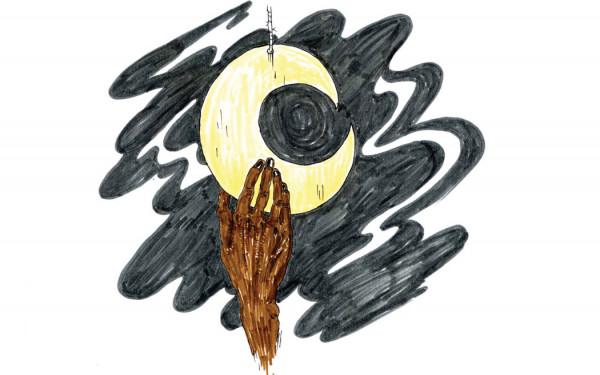Male Sexual Abuse is Still Abuse
This is a weird question to ask, but it’s a topic that I have rarely seen or read about in the media. I am a male in my mid-20s, and I was at a party recently where I think that I was sexually harassed, dare I say abused by this drunk girl. Everyone says that I am overreacting; now I feel guilty, dirty and undignified. Am I overreacting? —Anonymous
Your feelings are completely valid, and friends that respond by telling you that you’re overreacting are only helping to make you feel guilty for having completely normal feelings.
You aren’t dirty, guilty or undignified for someone else having crossed your boundaries. Regardless of gender, it is everyone’s right to determine and express their boundaries regarding what physical contact they do and don’t feel comfortable with.
Everyone deserves to have their feelings respected rather than dismissed, particularly in such a sensitive situation where an incident of sexual harassment is the source of those feelings.
You’re absolutely right that sexual harassment hardly gets talked about in the context of a male victim and female aggressor. This is partially due to our socialization around gender, and partially due to the difficulties surrounding the collection of statistics on sexual abuse.
Many cases of sexual abuse go unreported. It’s common for victims to be made to feel guilty or ashamed of their abuse, which can keep them from having the kind of confidence or support necessary to report their incident.
In addition, many forms of sexual harassment and abuse, such as catcalling and groping, have become so common that we let them pass us by daily. Thus, such incidents go virtually unreported. As a result, most statistics around sexual abuse are drastically lower than the reality.
Sexual abuse is also most often depicted as gendered, with women most commonly shown as the victims and men as the aggressors.
Nonetheless, cases of sexual abuse with a man as the victim and a woman as the aggressor do happen, but reports of sexual abuse are even lower among men.
Stereotypes around male sexuality tell us that men are supposed to want sexual attention from any woman at all times, which makes it difficult for men to say no to sex they don’t want, or to open up about abuse they’ve experienced without feeling emasculated.
When they do open up, it’s often treated as a non-issue or met with lines like, “What are you complaining about, that’s awesome!” Some of my male friends have expressed that they don’t know how to turn down physical advances from women, and always end up feeling as though they’re overreacting and not justified in feeling uncomfortable.
Even when we do talk about sexual abuse directed towards men, it’s most often in the context of when they were children, and can be more easily digested as a victim who was overpowered.
Or it’s presented the way Chris Brown recently did in an interview where he bragged about having “lost his virginity” (read: been raped) at 8 years old by a 14-year-old girl. Huffington Post writer Olivia Cole wrote a fantastic response to this interview, saying, “[…] [T]he same poisonous system that tells women they are rape-able tells men that they are not.”
Around discussions of sexual abuse, I’ve often seen a tendency to frame certain victims or situations as more legitimate than others. One way we see this in the de-legitimization of sexual abuse recounted by male victims.
Abuse is abuse regardless of who is receiving it and the gender, or other characteristics, of the victim should not serve to qualify or dismiss the abuse.
If you’re having feelings as a result of an incident, I highly recommend finding a close friend or family member who will take your feelings seriously, or reaching out for support and counselling through Concordia Counselling and Development or the Centre for Gender Advocacy.
Regardless of how you choose to deal with this, it is your experience and no one has the right to delegitimize it.
Submit your question anonymously at sex-pancakes.com and check out “Sex & Pancakes” on Facebook. Concordia Counselling & Development: 514-848-2424 ext. 3545 (SGW) or ext. 3555 (LOY). The Centre for Gender Advocacy: 514-848-2424 ext. 7880





_600_375_90_s_c1.jpg)
